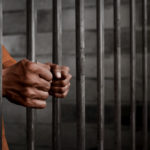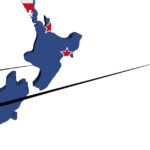Jury Finds that ‘Respect the Flag’ Group are a Criminal Gang

It’s an unfortunate day when a child’s birthday party ends in adults on the street with weapons drawn.
In one such party in Douglasville, Georgia, which was attended predominantly by African-American people, the celebrations were interrupted when a group called ‘Respect the Flag’ drove down the street in trucks waving Confederate flags and yelling.
The District Attorney, Brian Fortner, took action, alleging that the group engaged in illegal conduct against the African-Americans at the party by yelling racist abuse and drawing a crowbar, a knife and a gun.
A jury in Georgia indicted 15 members of the group for “terroristic offences” and “criminal gang activity.”
It is one of the only times that Georgia’s 1992 “anti-gang laws” have been used to prosecute a Confederate group in America’s Deep South.
The Confederate flag is a familiar symbol to Americans. During the American civil war, Southerners would raise the flag while fighting for their right to own black slaves. With all that baggage, it is little wonder than many people see it as a symbol of racism.
Since June, there have been increasing reports of pick-up trucks carrying the flag after the massacre of nine African-American churchgoers by a white man in Charleston. It is believed the gunman was motivated by racism.
Were They a Criminal Gang?
Georgian laws relating to street gangs are very broad, designed to capture “any type of activity that occurs with a group that’s organised that commits a crime.”
Under section 16-15-3 of the Georgia Street Gang Terrorism and Prevention Act, a gang is defined as:
A group of three or more people; associated together in some recognisable way; that engages in one act of gang related criminal activity.
Legal scholars have criticised the laws as being too broad and capturing just about any group of people, whether they are united behind a particular ideology or objective, or not.
Georgian Public Defender LeeAnn Lynch says that people can even be prosecuted as a gang for “wearing certain types of clothes or have a group motto that they share.”
Anti-Gang Laws in NSW
The law in NSW uses the term “criminal organisation” rather than “gang”.
The Crimes (Criminal Organisations Control) Act 2012 (NSW) empowers the NSW Police Commissioner to apply to the Supreme Court for a declaration that a group is a “criminal organisation”.
Under section 7 of the Act, a court can declare the group a “criminal organisation” if:
(a) It is an organisation, and
(b) Members of the organisation in NSW associate for the purpose of organising, planning, facilitating, supporting or engaging in serious criminal activity, and
(c) The continued existence of the organisation is an unacceptable risk to the safety, welfare or order of the community.
Under section 3, someone is a member of such an organisation they identify themselves as a member in some way, or if are treated as a member by the organisation itself.
“Serious criminal activity” is defined in section 6 of the Criminal Assets Recovery Act 1990 (NSW) and includes a broad range of offences such as drug trafficking, fraud by deception, offences of violence, homicide or child prostitution.
Penalties and Restrictions
Once declared a criminal organisation, members are subject to “control orders” which prevent them from associating.
It is a criminal offence under section 26(1) of the Act for members to associate with one another. The maximum penalty is 2 years imprisonment.
Under section 26(1)(A) they associate with each other on three or more occasions within three months, the maximum penalty increases to 3 years imprisonment.
And under section 26(1)(B), , the maximum penalty increases to 5 years imprisonment if they have previously been convicted of one of those offences.
Under section 27(6) of the Act, control orders can also restrict job options, such as being a pawn-broker or working in as a security officer. Any authority or license to carry on a “body art tattooing business” can also be revoked.
Racist Protests in Australia
Australia has seen a number of public demonstrations against Muslims over the past decade; going back to the shocking ’Cronulla Riots’ of 2005 which presented us to the rest of the world as a racist country.
Most recently, protests outside Bendigo Mosque led by far-right anti-Islam group “United Patriots” have drawn criticism and controversy both here and overseas.
These demonstrations have polarised members of the Australian community: with some believing that protestors are merely protecting “Australian values”, while others point to the generalised racism and violent language contained on some of the placards held, and words uttered, by demonstrators to suggest that they may represent a “criminal organisation” within the broad definition contained in the legislation, and/or that individuals may be guilty of “inciting violence” under section 11.4 of the Criminal Code Act (Cth) in the event that the protests turn to violence.
What are your thoughts?






